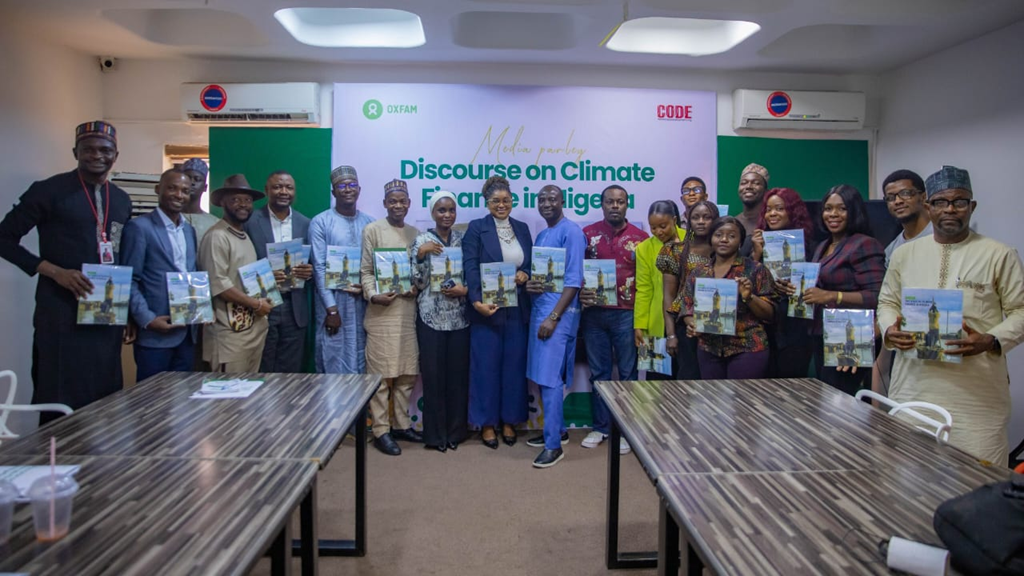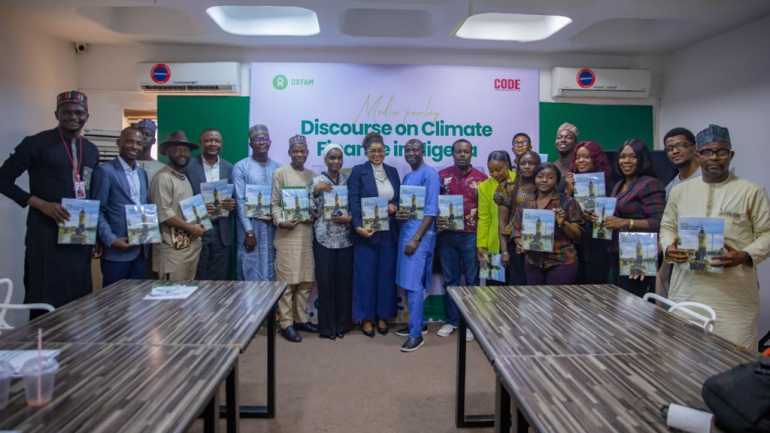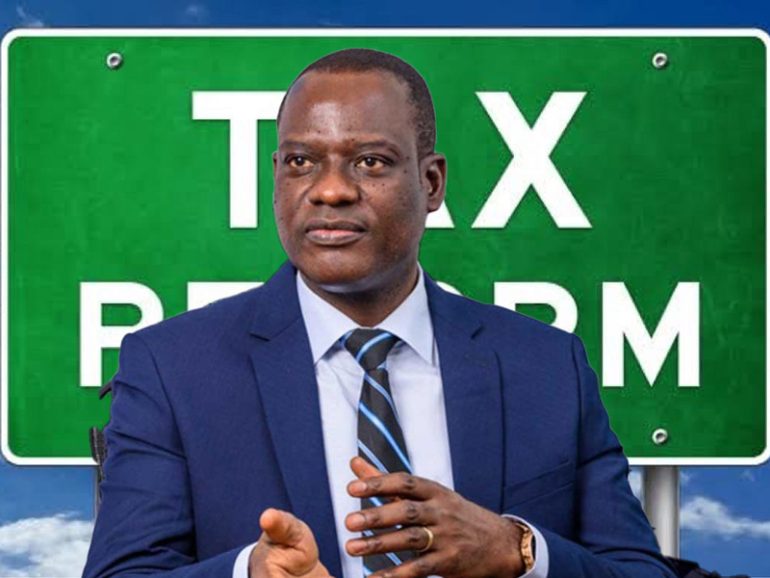Listeners:
Top listeners:
-
play_arrow
104.9FM Best rock music demo
-
play_arrow
Demo Radio Nr.1 For New Music And All The Hits!
-
play_arrow
Demo Radio Techno Top Music Radio
-
 play_arrow
play_arrow
Police Commissioner Launches Weapon and Riot Control Training for FCT Officers Democracy Radio

By Julian Osamoto
Nigeria is grappling with a widening climate finance gap, with experts warning that ineffective fund management and overreliance on loans are undermining the country’s ability to respond to growing climate vulnerabilities.
Speaking at a media discourse on Climate Finance in Abuja, Hyeladzira Msheila, Acting CEO of Connected Development (CODE), alongside UNFCCC stakeholders, emphasized that media oversight is critical for ensuring transparency and accountability, particularly as Nigeria prepares for international climate negotiations.
“Effective reporting bridges the gap between global climate pledges and local realities, ensuring funds reach the communities that need them most,” Msheila said.
Finance Gap Revealed
A joint report by CODE and Oxfam, State of Climate Finance in Nigeria, revealed that while Nigeria requires about $17.7 billion annually to meet its climate commitments, only $4.93 billion has been disbursed over the past seven years—leaving an estimated $7 billion annual financing gap.

The shortfall persists despite over 200 climate-related projects implemented in sectors such as agriculture, renewable energy, and water resources.
“The reliance on loans is deepening Nigeria’s debt burden, while grants that could ease fiscal pressure remain largely untapped,” the report notes.
CODE recommended adopting green budgeting to integrate climate targets into annual allocations for greater efficiency and impact.
Budget Analysis Highlights
-
Adaptation projects: 56% of allocations
-
Mitigation projects: 11%
-
Administrative costs: 32%
-
Climate education and finance mobilization: less than 0.5% combined
The Federal Ministry of Environment controls 64% of the climate budget, focusing mainly on erosion control, flood management, and pollution prevention.
Calls for Reform
Enebi Opaoluwa, Head of Natural Resource and Climate Governance at BudgIT Foundation, called for greater transparency, citizen participation, and climate-responsive budgeting.
“Communities are already bearing the brunt of climate shocks. Without accountable use of funds, vulnerabilities will only deepen,” Opaoluwa warned.
The Nigerian Climate Change Council (NCCC) was identified as a key actor in coordinating reforms, mobilizing domestic resources, and supporting state-level implementation.
Environmental Journalism as a Watchdog
Environmental reporting was highlighted as a tool for accountability. Etta Michael Bisong, Abuja Bureau Chief of EnviroNews, stressed the importance of linking Nigeria’s climate finance reporting to international frameworks under the UNFCCC, including the Kyoto Protocol (1997) and the Paris Agreement (2015).
“These agreements anchor climate finance as a central pillar, channeling resources from developed nations through mechanisms such as the Green Climate Fund, Global Environment Facility, Adaptation Fund, and the Loss and Damage Fund,” Bisong said.
UNFCCC and Climate Finance
The UNFCCC, established in 1992, guides global climate action. Its annual Conference of the Parties (COP) brings together governments, civil society, and scientists to review progress, set targets, and negotiate finance mechanisms.
“Journalists have a responsibility to track how climate finance commitments are implemented, particularly for countries like Nigeria that are highly vulnerable to climate impacts,” Bisong Stated.
Climate finance supports mitigation and adaptation projects, including renewable energy, reforestation, flood defenses, drought-resistant crops, and early warning systems. While developed countries are the main funders, private investors and multilateral institutions also contribute.
Practical Steps for Journalists
Experts recommended:
-
Attending COP negotiation sessions and side events
-
Engaging African delegations and civil society organizations
-
Following official UNFCCC and Green Climate Fund reports
-
Collaborating with international journalist networks to amplify Africa’s climate finance needs
“Reporting on climate finance is not just about numbers; it’s about showing how billions pledged globally affect farmers, coastal cities, and renewable energy access in Nigeria,” Echianu said.
Conclusion
With extreme weather events intensifying, experts agree that accurate reporting, inclusive governance, and transparent fund management are critical to bridging Nigeria’s climate finance gap.
By combining investigative journalism, storytelling, and international collaboration, media professionals can help transform global climate pledges into tangible benefits for Nigerian communities, ensuring sustainable development and a just transition.
Written by: Julian Osamoto
Similar posts
Copyright Democracy Radio -2024


